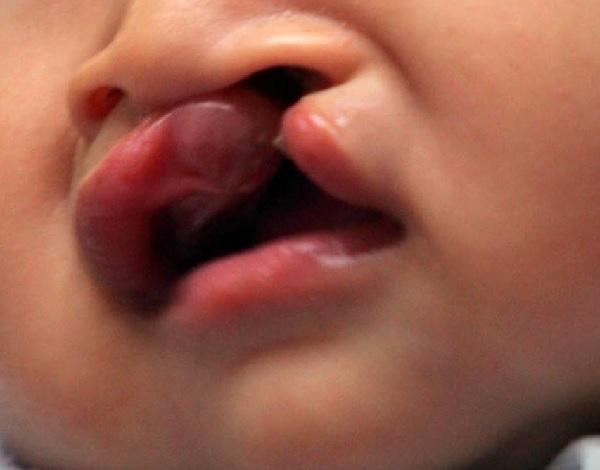
A Speech Therapist, Maryam Ibrahim-Maifada, has advised parents with a history of cleft lips to seek genetic counselling to prevent giving birth to a child with the condition.
She stated this in an interview with the News Agency of Nigeria in Kaduna on Monday.
Cleft lip or cleft palate are birth defects that occur when a baby’s lip or mouth does not form properly during pregnancy.
It is a condition in which the two plates of the skull that form the hard palate (roof of the mouth) are not completely joined and a baby is born with an opening in the roof of the mouth, leaving a hole between the nose and the mouth.
The therapist, who said that cleft lip can occur on one or both sides of the mouth, added that “this is because the lip and the palate
develop separately, and it is possible to have a cleft lip without a cleft palate, a cleft palate without a cleft lip, or both.
“If you have a family history of cleft lip and cleft palate, consult a doctor before you become pregnant. The doctor may refer you
to a genetic counselor who can help determine your risk of having children with cleft lip and cleft palate.”
According to her, cleft lip and cleft palate are facial and oral malformations that occur early in pregnancy, while the baby
is developing inside the mother.
She, therefore, advised mothers to avoid the use of tobacco or alcohol, stressing that “alcohol or tobacco during pregnancy
increase the risk of having a baby with a birth defect.
“A cleft lip is a physical split or separation of the two sides of the upper lip and appears as a narrow opening or gap in the skin
of the upper lip. This separation often extends beyond the base of the nose and includes the bones of the upper jaw and/or upper gum.
“In most cases, the cause of the cleft lip and cleft palate is unknown. These conditions cannot be prevented. Most scientists believe
clefts are due to a combination of genetic and environmental factors. There appears to be a greater chance of clefting in a newborn
if a sibling, parent, or relative has had the problem.
“Another potential cause may be related to a medication a mother may have taken during pregnancy. Some drugs may also cause
cleft lip and cleft palate. Among them are anti-seizure/anticonvulsant drugs, acne drugs containing Accutane, and methotrexate,
a drug commonly used for treating cancer, arthritis, and psoriasis.”
She said cleft lip may also occur as a result of exposure to viruses or chemicals while the fetus was developing in the womb.
In other situations, cleft lip and cleft palate may be part of another medical condition, she noted.
She explained that cleft lip may require one or two surgeries, depending on the extent of the repair needed.
She said, “repair of a cleft lip often requires multiple surgeries over 18 years. The initial surgery is usually performed when
the baby is three months old. This is to create a functional palate, reduce the chance that fluid will develop in the middle ears, and aids
in the proper development of the teeth and facial bones.
“Children with a cleft palate may also need a bone graft when they are about eight years old to fill in the upper gum
line so that it can support permanent teeth and stabilise the upper jaw.“However, about 20 per cent of children with the condition require further surgeries to help improve their speech.”
(NAN)










